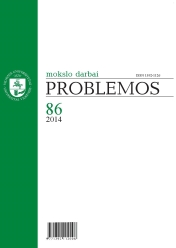THE STATE IS NOT LIKE A BEEHIVE: THE SELF-CONTAINMENT OF PLATO’S STATESMAN
THE STATE IS NOT LIKE A BEEHIVE: THE SELF-CONTAINMENT OF PLATO’S STATESMAN
Author(s): Vilius BartninkasSubject(s): Philosophy
Published by: Vilniaus Universiteto Leidykla
Keywords: Plato; the Statesman; statesmanship; conflict; political knowledge.
Summary/Abstract: The paper explores Plato’s Statesman in the perspective of its philosophical unity and autonomy. The relevance of this approach arises from the problem posed by the traditional readings of the Statesman – the developmental and unitarian. Both methods interpret the Statesman in the context of Plato’s major political dialogues of, the Republic and the Laws, thus preventing the exposing of the internal theoretical coherence of the dialogue. Hence this paper focuses on the analysis of the main political themes of the dialogue – conflict, statesmanship, and political knowledge – and their relations to each other. By discussing the emergence of the political and its importance for conceptualizing political practice, as well as by indicating the structural elements of statesmanship, the author of the paper argues that the Statesman contains a coherent and internally completed political theory.
Journal: Problemos
- Issue Year: 2014
- Issue No: 86
- Page Range: 127-138
- Page Count: 12
- Language: English

